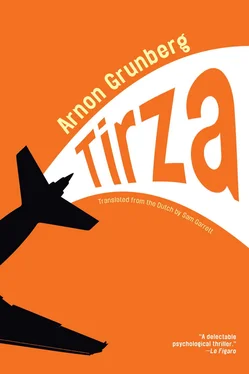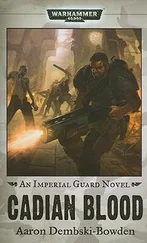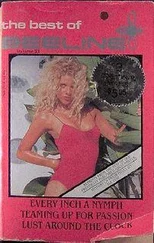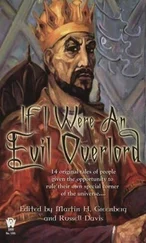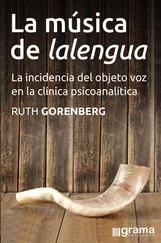There is little to do more. There is steady little more, so feel it. The present is reduced to a hotel room, a bed and a child. The opposite of future is a child, as far as he knows it now. For Kaisa is a day a year. There are times that he is experiencing as a relief. The lack of expectation and hope, the absence of plans and maps.
In the event of a business book trade has he immediately upon arrival color pencils, a pencil sharpener and a character pad purchased. He has not purchased shoes. However candy and chocolate.
A Westerner with bare feet, a briefcase under his arm, a hat on his head. We looked but half of in Lüderitz. Some westerners are now once crazy in Africa. They have sunk, they unloading on, they go never returned, they take the color of their surroundings.
The girl is a signatory. Ship's steward follows her movements. While he goes to the window and look at the sea. The windows are dirty. No glass washer can get closer to the action.
There are reminders, but he has not more under control. It is mainly details which are not necessarily related to other details. A hedge fund, infancy, blue, with klitten straps, the MS 170.
At high tide provide the waves to their window. If the noise of the wind him too much, he puts the radio hard. Here too the German-speaking Namibian transmitter.
He listens. Music and conversations with listeners who complain about the poor functioning postal services in Namibia, or sometimes just looking for something: a lift to Cape Town for example.
His phone has a ship's steward turned off. There is waited for him, there is an urgent waited for him, probably more urgent than ever in his life. But what does it mean?
Two times per day he takes a bath.
There are a few thoughts on the expressionist poets, the reference work that was not. The love that was declared dead and abolished, but all in all it was the abolition also a promise which is never materialised. Just like that reference work. The Warm body of the love, he note has ended
And every hour calls the better up to him by that he is not going to be able to continue, that he also in Lüderitz will not disappear. Although he is sure that the sea just as much as compassion will have with him if the sand. He did not doubt. But he has his opportunity has been lost. Now he is here with a child in the Nest Hotel. A child that no foreign more can be called. That fast. As soon keeps the other on foreign. Also in Namibia has he already had a past, he is a man with a history. That is why he returned. Back to where he came from. He has been created. We want to talk to him, even if it is only because the idea that acts have no repercussions is unbearable. It despises everything has no implications. Also a game must have consequences. In the game.
He shall inform the. Return is worse than disappear. Return is worse than the death.
'You know,' he says to Kaisa, on the fourth day of their stay in Lüderitz. The child goes to bed and signs. Her mouth is dirty of molten chocolate. 'You know,' ship's steward, 'time whispers Tirza three was, we are for the first time with her on winter sports. My parents found winter sports nonsense. In the summer we went three weeks to Limburg, nothing happened. That was enough. Why throwing money? But I thought: Tirza must learn skiing. And the earlier you learn skiing, the better you can. She has also sometimes to competitions previously. She was good in skiing but she was still better swimming.'
He is on his stomach on bed. The child draws by. He cannot see what it should be. Perhaps a house, a tree. The sun. A man.
He is talking about quiet, though they know each other for years and he joined the dessert yet another unknown and yet very familiar anecdote of stable.
Ship's steward is silent, he listens to the radio. A schlager. Again a schlager. Always but variety.
It dices Kaisa's mouth clean. 'I never went skiing,' he says, 'I sat down on her to wait. In the hotel. Or in the middle of the slope, by a tree. Sometimes I saw her than passing, if in a flash. At the very beginning, when she was three, I ran behind her. By the snow. Then she not so quickly. For if they would fall, therefore I ran behind her.'
She looks at him the child, otherwise than in the beginning. She looks at him as to someone they know.
'You know,' he says, 'You know, Kaisa… It sounds weird, but I think I am just about as old as you. I am…' he no longer knows what he wants to say, or, he knows. Of course he knows it. He wants to say that he, Jörgen ship's steward, the adult Jörgen ship's steward, the writer translated fiction, really does not exist and never existed. A role was that the child to power and ultimately with more and more precision and refinement played. A game.
He takes Kaisa in his arms, he covered her body with pillow and while he does, listens to the radio.
A woman singing. 'Laß uns leben,' she sings, 'jeden Traum. Everything geben, jeden Augenblick.'
Ship's steward does not on the girl to cushion. He kisses her without thinking about it, he kisses her as if it is obvious. Each part of her body, its entire main, her back, her belly, he kisses her as if he has something to get in.
He tries to remember why he has remained a nine-year-old, but there is nothing to him within. Just do it themselves for the spirit if nine-year-old. How did he look like? What he transferred? What did his parents against him and against his parents? His memory is a desert.
He only know for sure, safer than all the other, that he in fact never been anything else than a nine-year-old. Of course, his body has grown, his feet, his head and his nose, that everything is grown, but the rest remained what it was. The growth of the heart, the soul, how you want to name it has come to a standstill. As sure as he knows he is beyond all the future is, so sure he knows now that he, although he almost has reached retirement age, about as old as Kaisa.
And the woman on the radio singing: 'Bist du bereit, für unsere Zeit?'
Also here he he likes, the melody. 'Kaisa,' he whispers, 'I must back. There is waiting on me.'
He does not state who is waiting for him. He knows it was not exactly.
The girl picks up its pencils and continues with signs. He purr on its shoulders. The chocolate and the color pencils have stains in the Laeken Declaration, he sees. The idea is off.
For the first time since forty-eight hours clothe himself on. He does even a necktie for. Something must compensate for the lack of footwear.
Then elongates he the child. The t-shirt, the training trousers. He has a handwasje done.
'I,' he says, 'we go hiking.'
The wind is overwhelming, yanks to their clothes, their hairs, to Hofmeesters hat. Only occasionally offers a house or a wall protection. They walk carefully. There may be glass lying in the street.
The child hold it. And he is convinced now not more to whether he is ill. He knows that it is not. Sick people see the reality is not. They hear what is not there, they see what does not exist. Everything what he hears, is there and everything he sees, exists.
It feels good to have to walk with Kaisa. His presence in her life is natural and inevitable. This is the way it should be.
On a terrace in a shopping center that it prevents they drink fiendishly modern coffee, it with a lot of milk and sugar. He has no hope, but he is not ill. Perhaps the opposite, healthy. A healthy man. Jörgen ship's steward.
'I come back,' he says to Kaisa, 'I come back. I would you may adopt. This will not be so difficult. Then I take you to Europe. There you get a good training. I may be wrong, I know so well you not yet, but I think that you are very talented, high-high gifted.'
High-high gifted. He speaks the word from as others about the Prophet of God.
They walk through the town, along the church, a station that does not more if station works, walls with drawings and texts as 'Fight Aids, not people with AIDS.'
Читать дальше
